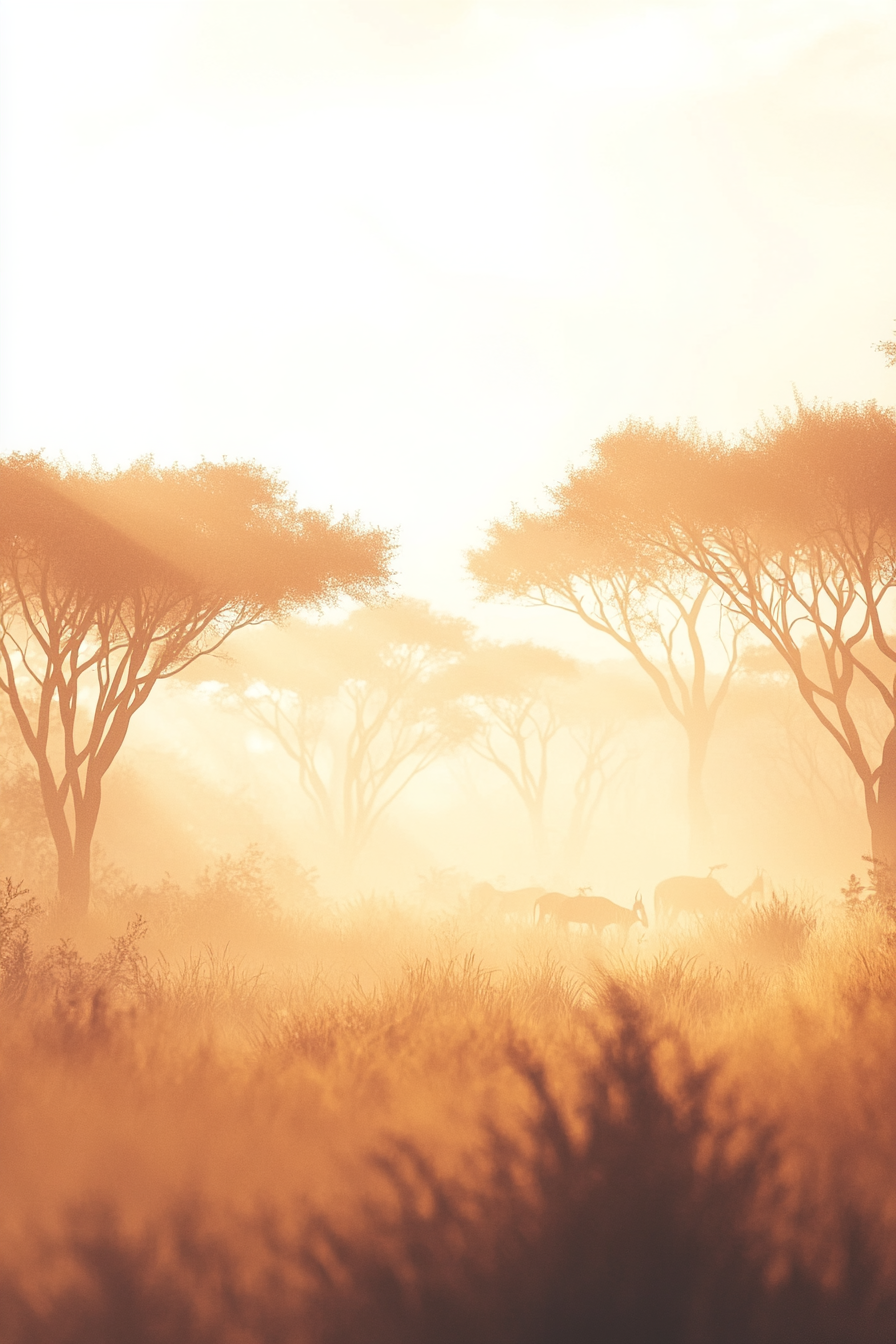
WHY HUNTING IS CONSERVATION
Conservation involves the preservation, management, responsible use, and restoration of resources to ensure their sustainability. Each country has a unique conservation model shaped by its fauna, flora, and cultural, economic, and educational factors, which influence local perspectives on hunting and its role in conservation.
In South Africa, home to iconic wildlife and some of the world’s most formidable predators, animals are protected within reserves and private game farms. This approach shields them from poaching and preserves their natural habitats, while also keeping urban and rural areas safe from free-roaming predators, which might otherwise be culled to protect human populations.
When wildlife is managed on reserves and farms, landowners take on the responsibility for maintaining the balance and health of the ecosystem within their borders. A well-designed management plan is essential to sustain both the land and its inhabitants, preserving the delicate balance and integrity of the ecosystem.
WITHOUT PROPER MANAGEMENT, THE FOLLOWING WILL OCCUR
When wildlife populations go unmanaged, land can quickly exceed its capacity to support them, leading to serious ecological consequences. Each piece of land can only sustain a limited number of animals before the vegetation loses its ability to recover. When a species becomes overpopulated, it depletes essential food sources, eventually causing starvation within the species itself and endangering other animals that rely on the same resources or prey on that species. This loss of vegetation exposes soil to erosion, weakening the land and causing potentially irreversible harm to the ecosystem. Proper wildlife management helps prevent these damaging effects, ensuring a balanced, sustainable environment for all species within the habitat.


A loss of genetic diversity in wildlife populations, especially in small or isolated herds, leads to inbreeding, which has significant negative impacts. Inbreeding reduces reproductive success, with lower fertility rates and increased mortality among young animals due to weakened immune systems and genetic defects. It can also cause slower growth, which affects the animals' competitiveness and survival, and increases the occurrence of hereditary abnormalities, like deformities or genetic diseases, further weakening the herd. Additionally, low genetic diversity diminishes a population's ability to adapt to environmental challenges, such as disease outbreaks or habitat changes, making them more vulnerable to decline.
To prevent this, wildlife management may introduce new genetic material from other populations, ensuring a healthier, more resilient gene pool. Through managed conservation and responsible hunting practices, game reserves support genetically diverse, strong populations that contribute positively to their ecosystems.
WHY HUNTING IS A KEY COMPONENT
TO AFRICA'S CONSERVATION MODEL
Hunting is a powerful force in Africa’s conservation economy, generating significant revenue that supports conservation, local communities, and national economies. International hunters contribute directly to rural, often underdeveloped areas through fees, permits, accommodations, and other related expenses. This financial injection is essential for reinvesting in wildlife management, habitat protection, and anti-poaching efforts, benefiting not only the targeted species but the broader ecosystem.
In addition to revenue, hunting tourism creates diverse employment opportunities for local communities. Roles such as guides, trackers, game rangers, and lodge staff are in high demand, which boosts local economies and strengthens the connection between communities and conservation. Through these opportunities, local people develop a vested interest in sustainable wildlife management, as they directly benefit from the presence of thriving wildlife populations. Moreover, the hunting sector supports infrastructure improvements like roads and communication networks, contributing to regional economic growth beyond the hunting industry itself.
Importantly, regulated hunting provides the financial means necessary to maintain large tracts of land dedicated to wildlife rather than converting it to agricultural or other land uses. With this model, game farmers are incentivized to breed and responsibly manage wildlife populations, helping sustain or even increase key species populations in these protected areas. As a result, biodiversity and ecosystem health are supported, with the presence of diverse, healthy populations of game animals.
Hunting also supplies a valuable food source for nearby villages, providing essential protein to rural communities and addressing food insecurity. By providing income and resources, hunting tourism helps reduce human-wildlife conflict, transforming local perspectives on wildlife. Animals, once seen as threats to crops or livestock, are now regarded as valuable resources that contribute to local livelihoods. This shift in perception leads to a more cooperative approach, with communities viewing conservation as a shared goal rather than a source of conflict.
This integrated model fosters both economic and ecological sustainability, making wildlife conservation viable while strengthening rural livelihoods. Ultimately, the balance of economic incentives and sustainable practices in hunting tourism promotes coexistence between people and wildlife across Africa’s unique landscapes, protecting biodiversity and fostering resilience for future generations.
THE BENEFITS OF TROPHY HUNTING
Trophy hunting of older males contributes to conservation by managing animal populations in a humane and ecologically responsible way. Once an animal has passed its prime reproductive age, it may become isolated or shunned by the herd, often leading to a slow and difficult decline due to starvation, disease, or age-related injuries. Selectively hunting these older males can prevent such suffering and provide essential financial support for conservation efforts.
Removing older males from the herd benefits genetic diversity as well. When these mature trophy animals are removed, younger males from surrounding territories have the chance to mate with the existing females. This introduces fresh genes into the population, helping maintain healthy, genetically diverse herds.
The income generated from trophy hunting is often reinvested directly into conservation efforts. For example, on reserves like Mabalingwe, funds from hunting contribute to purchasing young, healthy animals to enhance genetic diversity and increase breeding potential. Hunting revenue also supports game management programs, covering essential costs related to wildlife protection, habitat preservation, and anti-poaching efforts. By providing necessary resources, trophy hunting allows reserves to sustain biodiversity and protect ecosystems effectively, securing a future for African wildlife.
